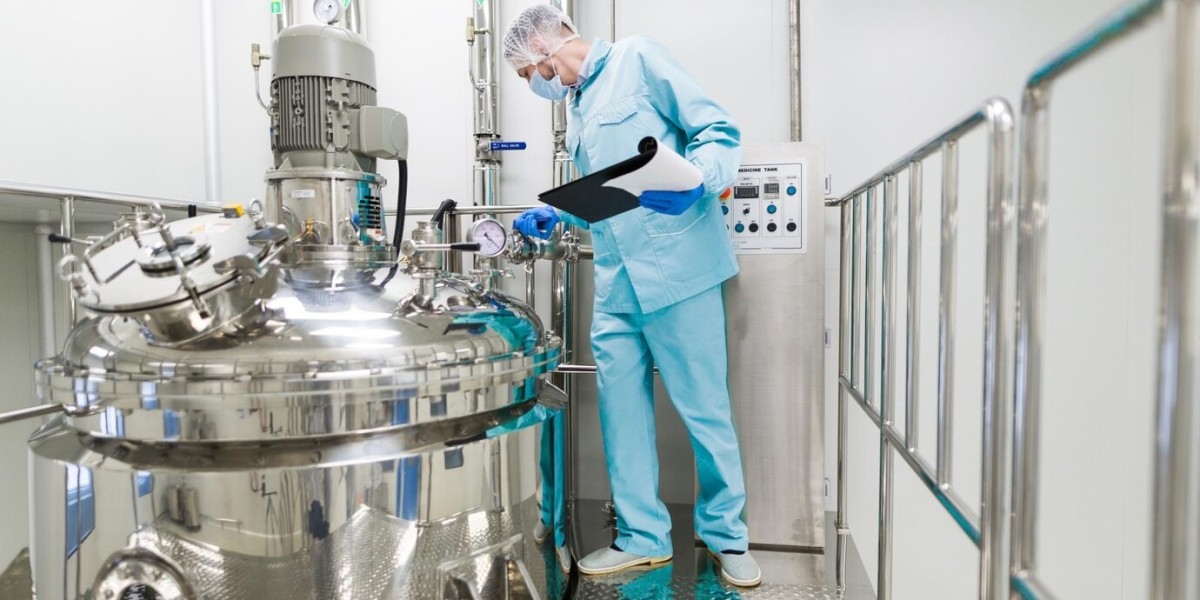A fermenter is a specialized vessel designed to support the fermentation process, where microorganisms like bacteria, yeast, or fungi convert organic compounds into useful products such as alcohol, organic acids, and biofuels. The use of a fermenter is essential in industries like food production, pharmaceuticals, and biotechnology, ensuring controlled conditions for microbial growth and optimal product yield.
Types of Fermenters
Different fermenters are designed based on the requirements of specific fermentation processes. Here are some of the most common types:
1. Batch Fermenter
A batch fermenter is used for a single-cycle fermentation, where all the ingredients are added at the start, and no further additions are made. This type is commonly used in beer brewing, yogurt production, and enzyme manufacturing.
2. Continuous Fermenter
A continuous fermenter operates by supplying fresh nutrients while simultaneously removing the final product. This system is ideal for large-scale industrial fermentation, such as in ethanol and antibiotic production.
3. Aerobic Fermenter
An aerobic fermenter supports microbial processes that require oxygen. These fermenters come equipped with aeration systems to ensure a steady oxygen supply, commonly used in vinegar and pharmaceutical production.
4. Anaerobic Fermenter
An anaerobic fermenter operates in an oxygen-free environment, making it ideal for beer brewing, winemaking, and biogas production. The sealed system ensures purity and prevents contamination.
5. Conical Fermenter
A conical fermenter features a cone-shaped bottom that allows easy separation of yeast and sediment from the liquid. This type is popular in breweries and wineries for efficient yeast harvesting and clearer final products.
Essential Features of a Fermenter
A high-quality fermenter should include the following key features to enhance the fermentation process:
Material Selection: Stainless steel fermenters offer durability, corrosion resistance, and ease of cleaning, while plastic fermenters are more affordable and suitable for small-scale applications.
Temperature Control: Maintaining the right temperature is critical for microbial activity. Many fermenters come with integrated heating or cooling systems.
Airlock and Ventilation: Proper ventilation ensures that gases like carbon dioxide can escape while preventing unwanted microbial contamination.
Easy Cleaning and Sterilization: A smooth interior surface and removable components make it easier to clean a fermenter, ensuring hygiene and preventing bacterial buildup.
Applications of Fermenters
1. Brewing and Alcohol Production
A fermenter is a key component in the production of beer, wine, and spirits, where yeast ferments sugars into alcohol and carbon dioxide, contributing to unique flavors and textures.
2. Dairy and Food Industry
Fermenters are used to produce dairy products such as yogurt, cheese, and probiotics by encouraging beneficial bacterial growth.
3. Biotechnology and Pharmaceuticals
Industrial fermenters play a crucial role in manufacturing antibiotics, vaccines, and enzymes, ensuring large-scale controlled microbial growth for commercial applications.
Conclusion
A fermenter is a fundamental tool in fermentation-based industries, providing the right conditions for microbial activity and product consistency. Whether used in small-scale home brewing or large-scale industrial production, investing in the right fermenter ensures higher efficiency, better quality, and improved fermentation success.










